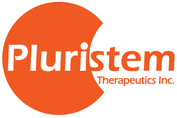
Pluristem Therapeutics Inc. services
Clinical Programs
Clinical Development Strategy Services
Pluristem’s goal is to provide patients, physicians and healthcare systems around the globe with standardized, easy to use and highly effective PLX cell products that need no genetic or tissue matching prior to administration. We are active with many respectful regulatory agencies worldwide to advance our clinical programs towards marketing. Part of our clinical development strategy is to achieve product approval through advanced regulatory pathways allowing for early marketing approval.
Graft Versus Host Disease (GvHD)
Graft Versus Host Disease (GvHD) is a potentially lethal complication of hematopoietic cell transplantation (HCT) from a donor. When a patient receives a donor’s stem cells, the transplanted cells may identify the patient’s body as foreign and attack it. The chronic form of GvHD occurs at least 100 days following the transplantation. The GvHD market is predicted to exceed $500 million by 2023. Preclinical studies showed that Pluristem’s PLX-PAD cell product potentially mitigates symptoms of cGvHD, and in addition the secretion profile and mechanism of action properties suggest that it may be a novel and effective treatment for the condition. Pluristem hopes to address this severe unmet medical need and help patients lead full lives after undergoing a transplant.
Muscle Regeneration
Femoral neck fracture is the most common form of hip fracture with annual treatment costs in the U.S. estimated to be between $10 to $15 billion, and are expected to rise due to the aging population, with mortality rates of up to 36%. *click for further information about Muscle injury due to total hip replacement.
Acute Radiation Syndrome (ARS)
Acute Radiation Syndrome (ARS) involves severe, potentially lethal damage to the bone marrow’s ability to produce blood cells, as well as to other systems and organs. Severe damage to bone marrow makes victims vulnerable to life-threatening hemorrhage, infection and anemia.
Acute Respiratory Distress Syndrome (ARDS) Associated with COVID-19
COVID-19 is caused by infection with the novel severe acute respiratory syndrome coronavirus 2 (SARS-CoV-2) that may cause clusters of severe respiratory illness associated with the need for intensive care unit (ICU) admission and high mortality. Studies have shown that Acute Respiratory Distress Syndrome (ARDS) following viral pneumonia is one of the most common causes of death from COVID-19[1],[2],[3],[4],[5]. A cytokine storm (CS) refers to excessive and uncontrolled release of pro-inflammatory cytokines that commonly present as systemic inflammation, multiple organ failure, and high inflammatory parameters. In coronavirus pneumonia, massive inflammatory cell infiltration and a CS lead to acute lung injury, ARDS and death[6],[7].

